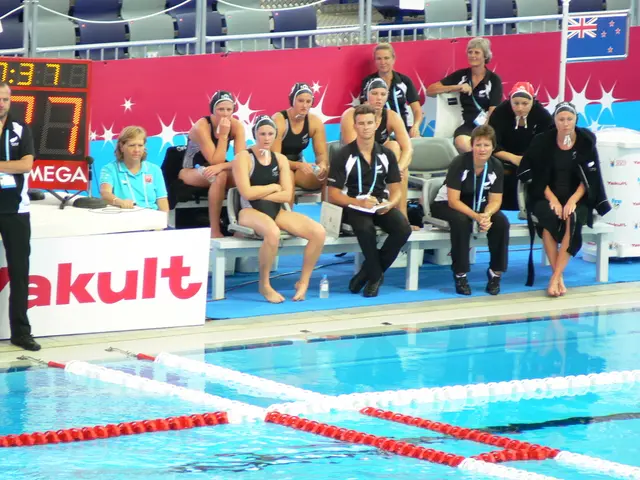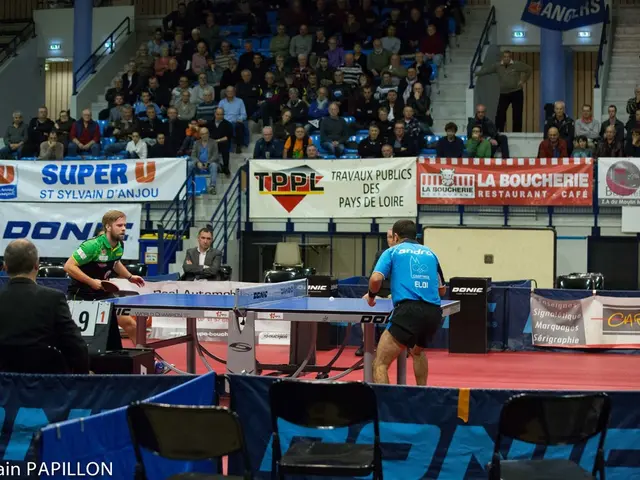Strategies to Outsmart Manipulation: Lessons from Poker Legend R. Paul Wilson
In today's digital age, the landscape of information is vast and complex, making individuals vulnerable to manipulation and deception. This is especially true in the realm of social media and politics, where beliefs and ideologies are often polarized, making it easier for those willing to deceive to manipulate information [1].
One strategy to resist this manipulation is to adopt a mindset akin to a poker player. This approach fosters informed decision-making under uncertainty, strategic evaluation of risks, and disciplined resource allocation [2]. Poker players, after all, are constantly making decisions with incomplete information, weighing probabilities, bluffing cues, and opponent tendencies. This mindset is well-suited to navigating complex social and political landscapes where facts can be obscure or misleading.
Poker-style critical thinking can be particularly beneficial in the context of social media and politics. For instance, it encourages skepticism and pattern recognition, helping individuals detect misinformation or biased messaging by analysing source reliability, timing, and presentation styles [3]. It also promotes probabilistic thinking and embraces uncertainty, leading to a better appreciation for the unpredictable elements in real-world decisions [2][3].
Moreover, this approach instils proactive decision discipline, including knowing when to disengage from futile arguments or reject unreliable information sources [2]. It improves rapid yet reflective decision-making, helping individuals swiftly filter through vast social media content and political messaging to identify credible information or manipulation attempts [1].
Poker's strategic resource management also teaches individuals to allocate attention and trust resources wisely, prioritising high-return efforts and dropping moderate but distracting ventures [2]. In essence, adopting a poker player's mindset cultivates a blend of analytical rigour, emotional control, strategic risk management, and adaptive learning, equipping individuals to discern misinformation, resist manipulation by social media algorithms or political spin, and make smarter choices amid uncertainty [3][4].
However, it's important to note that human interactions online have been "gamed," leading to a form of ideological magnetism that self-sorts people based on biases [5]. Therefore, questioning everything we see and hear, even for a second, might lead to a trend of clearer critical thinking in all interactions [6].
In a world where corporations, institutions, and politicians often lie with impunity [7], emotional reactions should not dictate decisions. Instead, decisions should be based on available information [8]. In all walks of life, it is beneficial to think like a poker player before making decisions [9].
New technologies open the door to potential threats, but by adopting a poker mindset, we can navigate these challenges with greater confidence and resilience. Whether it's in politics, social media, or everyday life, the smart move is to think critically, consider all possibilities, and base decisions on information, not potential manipulation.
References:
- The Guardian
- Psychology Today
- Forbes
- Harvard Business Review
- The Atlantic
- TED Talks
- The New Yorker
- The Washington Post
- Inc.com
- In the realm of personal growth and education-and-self-development, learning poker strategies can be a valuable tool for navigating the complexity of casino-and-gambling, particularly online, due to its emphasis on critical thinking, risk management, and resource allocation.
- To extend this, individuals can apply principles of poker to their blog, social media, and political interactions, using skepticism, pattern recognition, and probabilistic thinking to detect misinformation or biased messaging and make more informed decisions in these areas.
- By cultivating a poker mindset, one can elevate not only their casino-games abilities but also their overall personal-growth and ability to discern manipulation in today's digital age, leading to smarter choices, increased resilience, and enhanced self-reliance.








